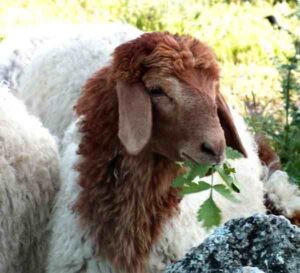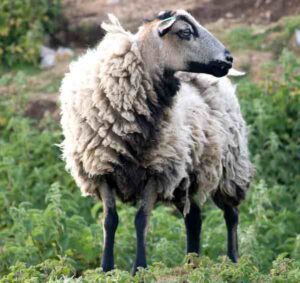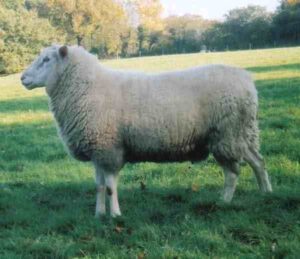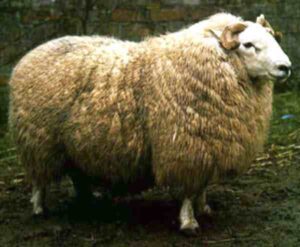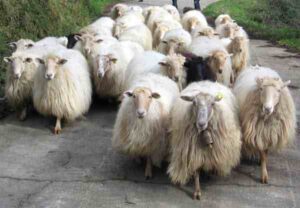The Oxford Down sheep is a breed of domestic sheep from United Kingdom. It was developed in the 1830s in Oxford County, England. The breed was created by crossing the Hampshire, Cotswold and South Down sheep breeds, and using the resulting cross-breeds to form the basis of the present-day breed.
The Oxford Down sheep became very popular in many countries and was widely exported throughout Europe and North America. As farmers focused on producing smaller joints, the breed’s popularity declined in the latter half of the 20th century.
Like other Down breeds, the Oxford Down sheep were overtaken by the Suffolk and imported sheep breeds such as the Texel. Today the breed enjoys a good reputation and farmers are beginning to realize the potential an Oxford Down ram has. The Oxford Down Sheep Breeder’s Association was formed in 1889, and the first flock book published during that time.
Today the breed is raised mainly for meat production. However, read some more information about this sheep breed below.
Oxford Down Sheep Characteristics
Oxford Down sheep are large animals with beautiful appearance. They are generally large bodied animals, and both rams and ewes are usually polled. They have a black or brown face and legs covered in white wool, and have a short fleece. They produce the heaviest fleece of any of the Down sheep breeds.

They also have the capacity to produce a large, meaty carcass and these animals also grow the most wool of any of the terminal sire breeds.
Fleece from the mature animals weight between 3.6 to 5.4 kg with a fiber diameter of 30.0 to 34.5 micrometers and a numerical count of 46 to 50. The staple length of the fleece ranges from 3 to 5 inches and has a yield of 50 to 62 percent.
Average live body weight of the mature ewes is between 91 and 113 kg. The mature rams are slightly larger than the ewes. And average live body weight of the mature rams vary from 110 to 140 kg. Photo and info from Wikipedia.
Uses
Oxford Down sheep is a meat sheep breed. It is raised mainly for meat production.
Special Notes
The Oxford Down sheep are very beautiful and hardy animals. They are well adapted to a wide range of climatic conditions, and they can do well under conditions of liberal feeding.
They are considered a very valuable breed for market lambs production. The ewes are very prolific, and their lambing percentage of around 150 percent are not uncommon.
The ewes are good mothers, and most of the ewes will nurse twins with little effort. The lambs are usually large and strong at birth. The Oxford Down is a very good feeder, does well on an abundant feed supply, and is particularly adept at consuming large quantities of pasture and hay.
The Oxford Down rams are very useful in crossing on small ewes for increasing the weight and size of lambs. Today the breed is raised mainly for meat production. However, review full breed profile of the Oxford Down sheep in the following chart.
| Breed Name | Oxford Down |
| Other Name | Oxford |
| Breed Purpose | Meat |
| Special Notes | Very hardy and strong animals, very beautiful appearance, well adapted to a wide range of climatic conditions, can do well under conditions of liberal feeding, considered a very valuable breed for market lambs production, ewes are very prolific, the lambs are usually large and very strong at birth, the rams are useful in crossing on small ewes |
| Breed Size | Large |
| Weight | Weight of the mature ewes vary from 91-113 kg, and the mature ram’s body weight is between 110 and 140 kg |
| Horns | No |
| Climate Tolerance | Native climates |
| Color | White |
| Rarity | Common |
| Country/Place of Origin | United Kingdom |
